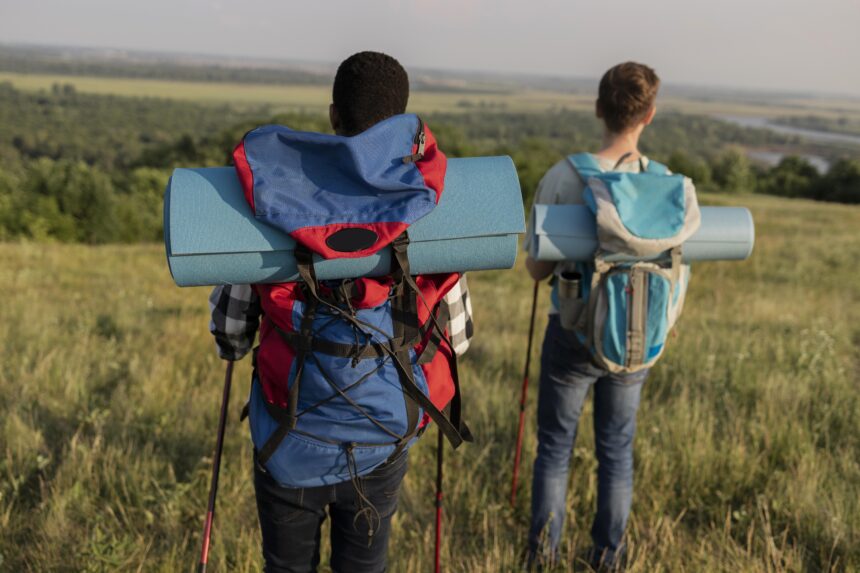Helping abroad should help for real. This friendly guide shows you how to choose credible projects, avoid harm (especially to children), and create value that lasts beyond your flight home.

Start by defining what ethical voluntourism means to you: projects led by local organizations, roles that fit your skills, clear safeguarding, and outcomes the community actually asked for. If a program can’t show those basics, keep looking.
TL;DR
- Vet the organizer (governance, safeguarding, reporting) before you pay.
- Skills first: pick roles you can do safely without displacing local jobs.
- Protect children: avoid orphanage visits or settings that normalize unsafe contact.
- Budget for the project, not just your flight—local procurement multiplies impact.
Ethical Voluntourism: What It Is—and What It Isn’t
At its best, ethical voluntourism supports locally defined goals using volunteers who add capacity without replacing paid roles. At its worst, it centers traveler experiences, creates dependency, or—even unintentionally—harms kids and vulnerable adults.
12 Honest Questions to Ask Before You Join
- Who leads the project? Local NGO, school, clinic, or municipality with transparent governance beats a travel middleman. Ask to speak with the local partner.
- What problem are you solving? Look for a needs assessment, not just a feel-good description. A credible plan links inputs → activities → outcomes.
- Do your skills fit? If training or licensing is required at home, it’s required abroad. Choose roles where your contribution is safe and additive.
- Safeguarding in place? Written policies, background checks, supervision ratios, and a named safeguarding officer are non-negotiable.
- Child protection? No orphanage tourism. Reputable groups discourage short-term attachments that can harm children’s development.
- Will locals be paid? Volunteers shouldn’t displace paid work. If the task is ongoing (teaching, construction), why isn’t a local hired?
- Where does your fee go? A breakdown should show program costs, local wages, materials, and admin—vague “operations” lines are a red flag.
- Procurement policy? Buying supplies locally supports the economy and reduces shipping waste.
- Exit strategy? Ask how the work continues after volunteers leave. Sustainability is the test.
- Accountability? Annual reports, third-party evaluations, or audits show the org takes impact seriously.
- Insurance & legal? Confirm your coverage, liability waivers, and host-country permissions (visas, permits).
- Communication ethics? The org should have rules for photos, consent, and storytelling that preserve dignity and privacy.
Those twelve questions turn vague marketing into a concrete checklist. They also make ethical voluntourism easier to explain to friends, family, or funders who ask why you chose a particular program.
Red Flags (Walk Away if You See These)
- “Play with kids in an orphanage” day-visits or photo ops.
- Promises of medical/teaching roles without credentials.
- No background checks or safeguarding training.
- Hard-sell tactics, unclear fees, or pressure to pay deposits fast.
- Stories that center the traveler as the hero, not the community.

Budget for Impact, Not Just Travel
A simple way to anchor ethical voluntourism is to split your budget: travel costs vs. project costs. Put a meaningful share into local salaries, materials, or training. When possible, buy supplies locally; it spreads value and builds relationships you won’t get from shipping boxes.
Safeguarding & Child Protection (Non-Negotiable)
Serious ethical voluntourism treats safeguarding as daily practice: background checks, role-specific training, incident reporting, and supervision. With children, the rule is stricter: avoid residential care visits and any activity that encourages attachment then separation.
- No posting identifiable images of children without written, informed consent from guardians.
- Use organization devices for photos; never your personal phone, where possible.
- Share de-identified stories that highlight local staff and community leadership.
Insurance, Health & Legal
Before you commit to ethical voluntourism, confirm your travel insurance covers volunteer activities, not just leisure. Some policies exclude construction or clinical tasks. Check vaccines, visas, and whether the host requires a police clearance or special permit for volunteers.
Impact You Can Prove (and Feel Good About)
The best way to keep ethical voluntourism grounded is to work with organizations that define success up front: a short outcomes list, a way to measure, and a simple report you can share with donors or your employer.
- Inputs: funds, hours, materials.
- Activities: training sessions, repairs, workshops.
- Outcomes: attendance, skills gained, facilities upgraded.
- Learning: what worked, what you’d change next time.
Storytelling Without Exploitation
Respectful stories are the heart of ethical voluntourism. Use consent-based photos, avoid trauma details, and center local staff. “We followed the clinic’s lead and funded a nurse training day” beats “I came to save the day.”

Sample Vetting Email (Copy/Paste)
Use this to kick off an ethical voluntourism conversation with any provider:
Hello — I’m exploring a volunteer placement from [dates]. Could you share: (1) your local partner and safeguarding policy, (2) role description and required skills, (3) how my fee is allocated, (4) how you measure outcomes, and (5) whether I need background checks, permits, or specific vaccines? Thank you!
Packing & Prep for Real-World Help
Pack like ethical voluntourism is a job: durable shoes, modest clothing aligned with local norms, copies of credentials, and a notebook for handovers. If you’re delivering training, bring printed handouts and leave editable files with the host.
- Bring a few universal teaching tools (markers, tape)—procure most supplies locally.
- Save key contacts and maps offline; test your eSIM or local SIM on arrival.
- Set daily debriefs with the local lead to capture feedback and adjust.
After You Leave: Don’t Drop the Thread
Finish ethical voluntourism well: share photos and files securely, write a short debrief with lessons learned, and—if invited—stay available for remote follow-ups. Small, steady support beats a single big gesture.
Related Guides on Bulktrends
- Travel Insurance Made Simple: 11 Essential Safeguards
- No-Fee Travel Money: Cards, ATMs & FX
- Travel eSIM Guide: Costs, Coverage & Setup
- Solo Travel Tips: Safer, Happier Trips
Authoritative External Resources (dofollow)
- U.S. State Dept — Volunteer Abroad Guidance
- UNICEF — Child Protection & Orphanage Volunteering (overview hub)
- UNWTO — Global Code of Ethics for Tourism
- Sphere — Humanitarian Standards Handbook
Disclaimer: Legal, health, and safeguarding requirements vary by country and project type. Verify current rules with program organizers and official sources before committing.






